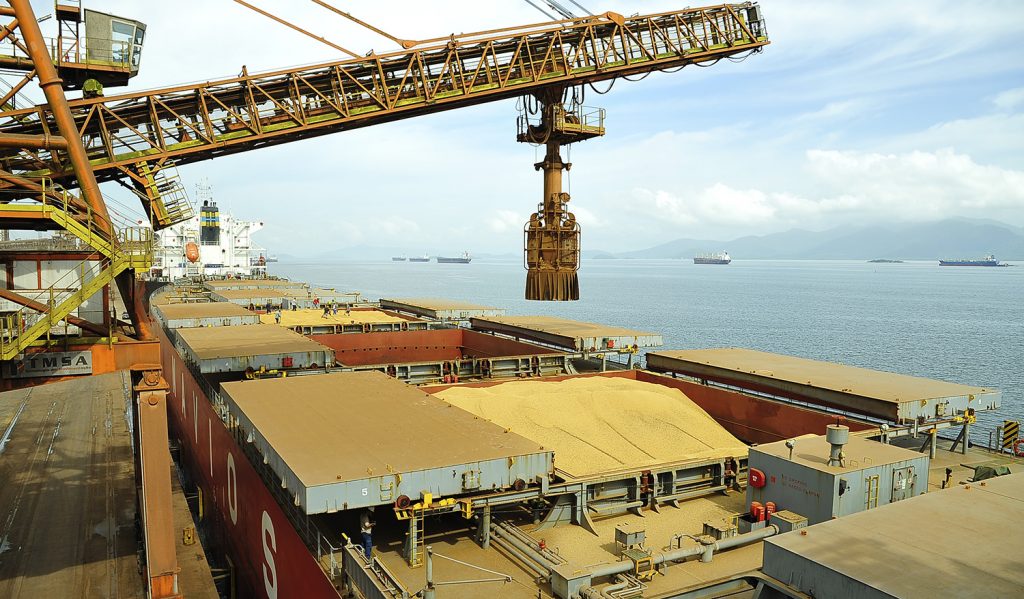São Paulo – Brazilian trade balance registered an USD 1.985 billion deficit in the third week of January. Exports reached USD 3.536 billion, and the imports USD 5.521 billion. Over the month, exports accumulated USD 1.574 billion. The information was released this Monday (21) by the Brazilian Ministry of Economy’s Foreign Trade Secretariat (Secex).
The daily average of shipping in the third week reached USD 707.3 million, a value 38.3% smaller than the average during the last week, thanks to a 50.3% drop in exports of manufactured products, down to USD 241.5 million, mostly due to platforms for oil extraction, planes, laminates, iron and steel flat-rolled, and goods and gas vehicles; and a 41.5% on basic products, down to USD 296 million, due to raw oil, iron ore, soy, corn, and raw cotton.
Exports of semi manufactured products grew by 10%, up to USD 169.9 million, due to celluloses, cast iron, raw aluminum, serrated or slotted wood and vegetable waxes.
On the other hand, imports grew by 57.4% over the same comparative period, reaching an average of USD 1.104 billion per working day, due mostly to the increased spending on fertilizers, aircraft and parts, fuels and lubricants, mechanical equipment, synthetic and artificial filament and fibers.
In the accumulated of the month, the daily average of exports grew by 26.3% in the comparison with the average until the third week of January 2018, reaching USD 977.5 million, due to increased sales of the first three categories of products. Manufactured ones, such as platforms for oil extraction, gas, fuel oils, motor parts and turbines for aviation, planes, and iron and steel flat laminates, had a 35.2% increase, reaching USD 391.6 million; semi manufactured, such as cellulose, iron or steel semi manufactured, gold in semi manufactured shapes, cast iron, copper cathodes, and raw aluminum, grew by 34.1%, to USD 160.3 million; basic items such as raw oil, corn, iron ore, soy, soy bran, and raw cotton, registered a 23.9% increase, reaching USD 425.4 million.
Among imports, the daily average until third week of January was USD 856.5 million, a value 31.7% above the average of January 2018. In this comparison, spending with aircraft and pieces grew by 152%, fertilizers 89.6%, organic and inorganic chemicals 22.4%, plastic and articles 12.9%, and mechanic equipment 5.5%.
Translated by Guilherme Miranda




